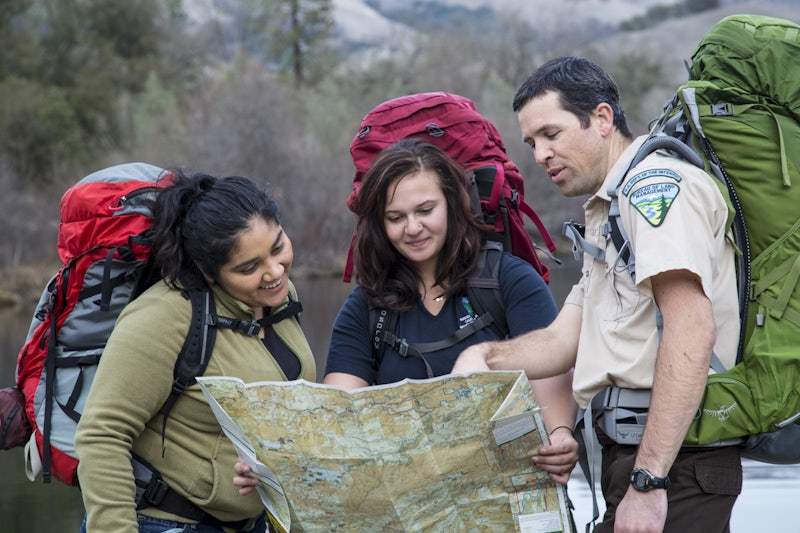In today's interconnected world, travel has become more accessible than ever before, allowing people to explore new destinations and cultures with ease. However, along with the joys of travel comes a responsibility to ensure that our adventures have a positive impact on the places we visit and the people who call them home. This raises the crucial question: why is it important to be a responsible tourist?
What is Responsible Travel & Why Does it Matter?
Responsible travel, also known as sustainable travel or eco-tourism, is a way of traveling that aims to minimize negative impacts on the environment, support local communities, and promote cultural understanding. In recent years, responsible travel has gained increasing attention as travelers become more aware of the importance of ethical and sustainable tourism practices. But what exactly is responsible travel, and why does it matter?
Definition: Responsible travel encompasses a range of practices and principles aimed at minimizing the negative impacts of tourism while maximizing the benefits for local communities and the environment. This includes reducing carbon emissions, conserving natural resources, supporting local businesses, respecting local customs and traditions, and minimizing waste and pollution.
Why Does Responsible Travel Matter?
- Environmental Conservation: Minimizes negative impacts on fragile ecosystems, preserves biodiversity, and reduces carbon emissions.
- Cultural Preservation: Respects and engages with local customs, traditions, and ways of life, fostering mutual respect and understanding.
- Supporting Local Communities: Boosts local economies, creates jobs, and empowers communities to thrive.
- Promoting Sustainable Development: Drives economic growth, social equity, and environmental protection in destination communities.
- Personal Fulfillment: Offers meaningful and authentic experiences, deepens understanding of the world, and enriches the travel experience.
Why Is It Important To Be A Responsible Tourist?
Preserving Natural Beauty
Being a responsible tourist means being mindful of the environmental, social, and cultural impact of our travels. It involves making conscious choices to minimize our footprint, respect local customs and traditions, and support sustainable practices wherever we go. By doing so, we can help preserve the beauty and integrity of our planet for future generations to enjoy.
Protecting Wildlife
Responsible tourism also plays a crucial role in protecting wildlife and biodiversity. Many of the world's most iconic species, from elephants and tigers to whales and sea turtles, are facing threats from habitat loss, poaching, and climate change. By choosing wildlife-friendly activities, supporting conservation efforts, and respecting animal habitats, responsible tourists can help safeguard these magnificent creatures and ensure their survival for years to come.
Respecting Local Communities
Another key aspect of responsible tourism is respecting the rights, customs, and traditions of local communities. Tourism can bring economic benefits to communities around the world, but it can also lead to cultural erosion, social inequality, and exploitation if not approached with care. By engaging with local communities in a respectful and responsible manner, tourists can foster positive relationships, support local businesses, and contribute to sustainable development.
Minimizing Environmental Impact
Travel inevitably has an environmental impact, from carbon emissions generated by transportation to waste produced by hotels and restaurants. Responsible tourists can minimize their environmental footprint by choosing eco-friendly transportation options, conserving water and energy, reducing waste, and supporting businesses that prioritize sustainability. By adopting environmentally conscious practices, travelers can help mitigate their impact on the planet and contribute to global efforts to address climate change and environmental degradation.
Promoting Cultural Exchange
Responsible tourism promotes cultural exchange and understanding by encouraging travelers to engage with local communities, learn about their customs and traditions, and embrace diverse perspectives. By immersing themselves in local culture, tourists can gain a deeper appreciation for the places they visit and forge meaningful connections with the people who call them home.
Ensuring Sustainable Tourism Development
Finally, being a responsible tourist is essential for ensuring the long-term sustainability of the tourism industry. Sustainable tourism practices benefit not only the environment and local communities but also the tourism industry itself by preserving destinations for future generations of travelers to enjoy. By prioritizing sustainability and responsible travel, tourists can help create a more resilient and equitable tourism industry that benefits everyone involved.
Conclusion
In conclusion, being a responsible tourist is not just a moral imperative; it is essential for protecting our planet, supporting local communities, and promoting sustainable development. By making conscious choices to minimize our environmental footprint, respect local customs and traditions, and support sustainable practices, we can ensure that our travels have a positive impact on the world around us. So the next time you embark on a journey, remember to ask yourself: why is it important to be a responsible tourist? The answer is clear: because our planet and future generations depend on it.







No comments:
Post a Comment